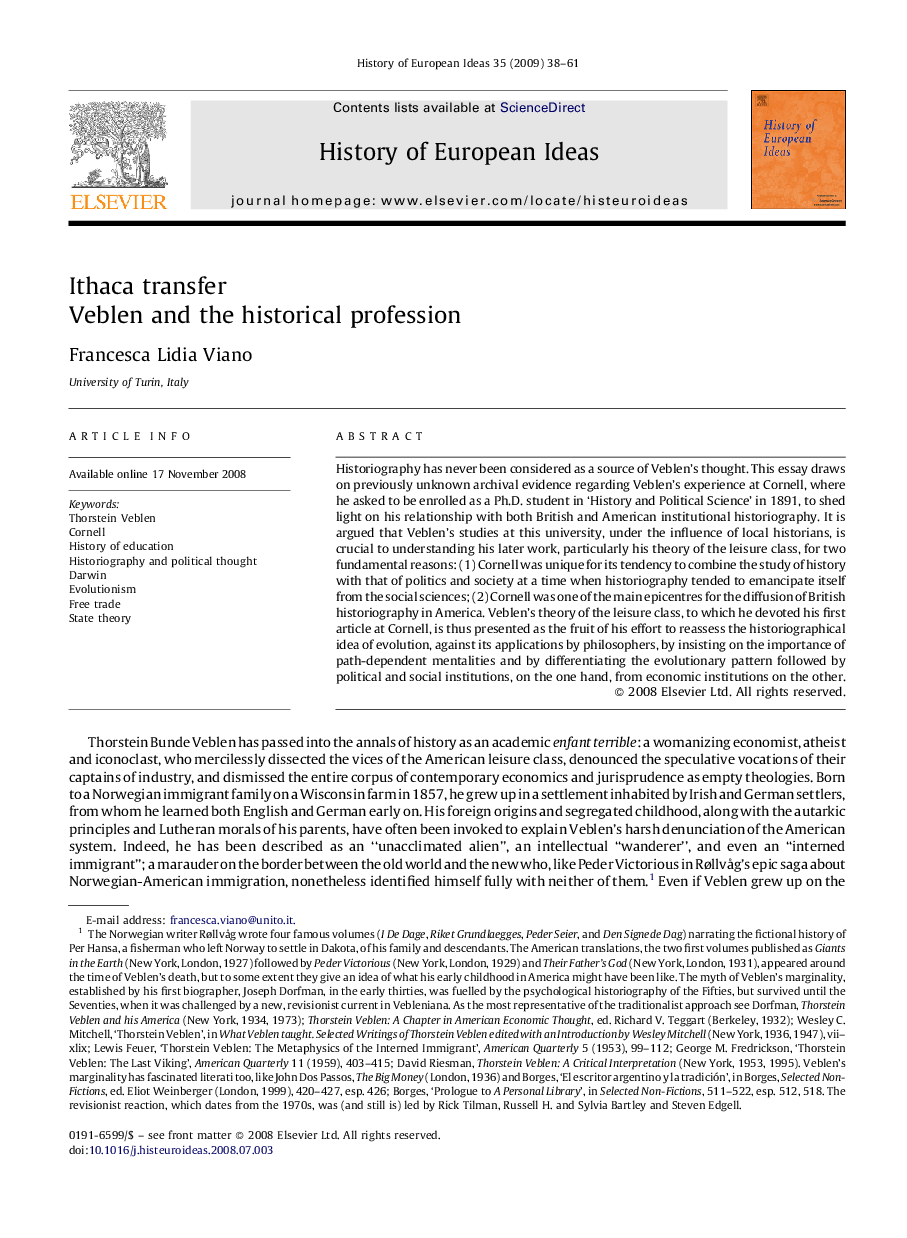| Article ID | Journal | Published Year | Pages | File Type |
|---|---|---|---|---|
| 1159151 | History of European Ideas | 2009 | 24 Pages |
Abstract
Historiography has never been considered as a source of Veblen's thought. This essay draws on previously unknown archival evidence regarding Veblen's experience at Cornell, where he asked to be enrolled as a Ph.D. student in 'History and Political Science' in 1891, to shed light on his relationship with both British and American institutional historiography. It is argued that Veblen's studies at this university, under the influence of local historians, is crucial to understanding his later work, particularly his theory of the leisure class, for two fundamental reasons: (1) Cornell was unique for its tendency to combine the study of history with that of politics and society at a time when historiography tended to emancipate itself from the social sciences; (2) Cornell was one of the main epicentres for the diffusion of British historiography in America. Veblen's theory of the leisure class, to which he devoted his first article at Cornell, is thus presented as the fruit of his effort to reassess the historiographical idea of evolution, against its applications by philosophers, by insisting on the importance of path-dependent mentalities and by differentiating the evolutionary pattern followed by political and social institutions, on the one hand, from economic institutions on the other.
Related Topics
Social Sciences and Humanities
Arts and Humanities
History
Authors
Francesca Lidia Viano,
